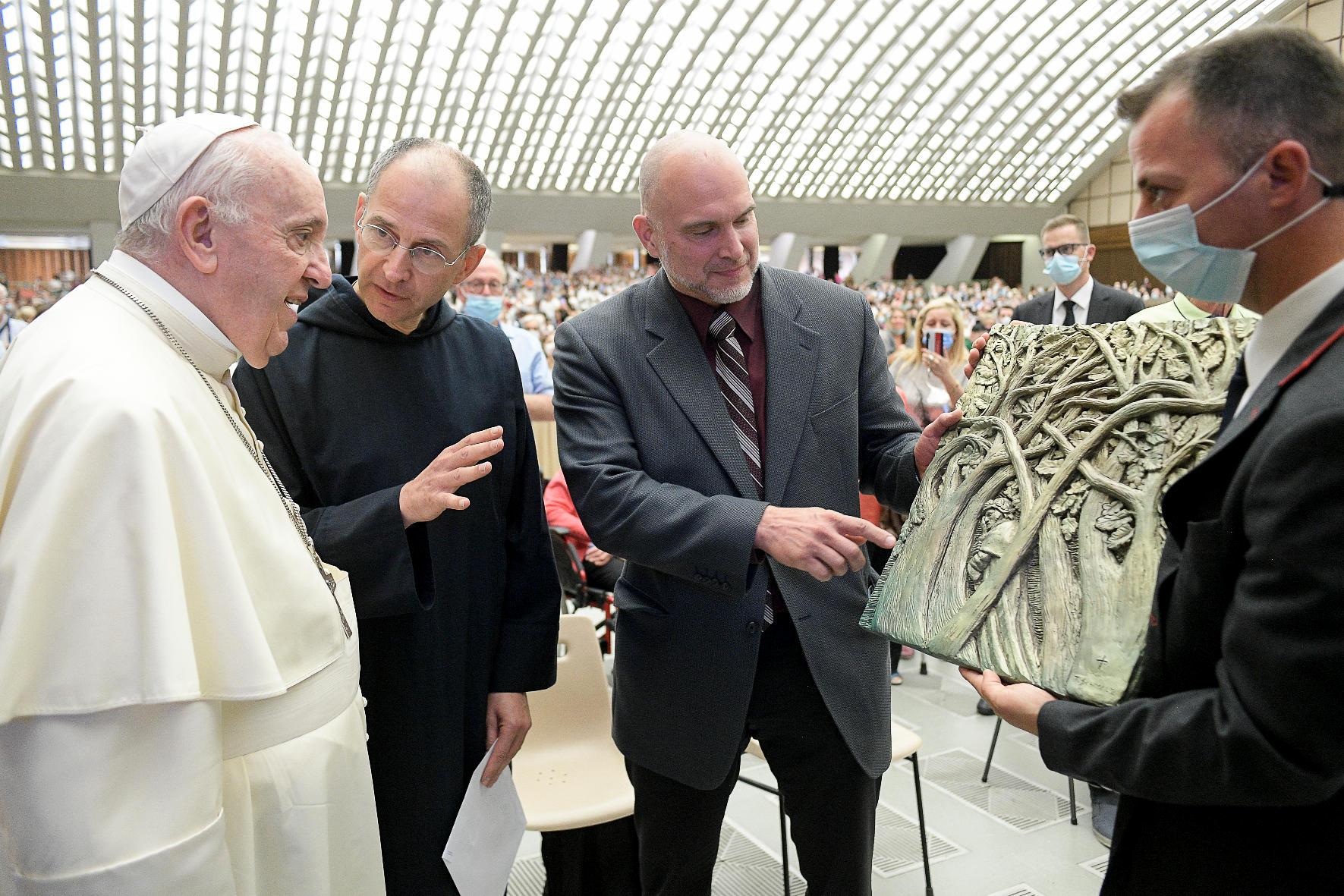
The gift of an ambitious art installation is helping the University of St. Michael’s College mark the 700th anniversary of the death of poet Dante Alighieri in a unique way.
The work, entitled The Dante Gardens, reflects the poet’s journey through Hell and Purgatory and finally to Heaven as depicted in The Divine Comedy, considered one of the greatest works of all time. The installation, created by sculptor Timothy Schmalz, consists of 100 panels, reflecting the 100 cantos of the poem, as well as a sculpture of Dante at work.
The complete work is to be installed on the southwest corner of St. Michael’s campus in the spring of 2022. Ongoing complications due to COVID have delayed the installation of the work, which had been scheduled closer to the Sept. 14 anniversary date of Dante’s death.
For sculptor Schmalz, the work is not only a labour of love, but also a re-emphasis of what he sees as inadequate renderings of The Divine Comedy in the past. While the poem relates the journey of the soul after death and includes views of Hell (Inferno), Purgatory (Purgatorio), and Heaven (Paradiso), he says visual representations have tended to focus primarily on Hell.
“When the focus is just on Hell it ceases to become a comedy,” Schmalz says. “And it’s not very Catholic to skip purgatory and paradise. There is hope and joy, too.”
University President David Sylvester says the installation, in a prominent location in downtown Toronto and visible to passersby, will serve as an introduction to Dante for many, and will provide a spot for people to stop in the midst of their day to ponder some of life’s biggest questions.
“St. Michael’s has long been known for its appreciation of Dante as a major part of Christian im-agination. We host an annual Dante Lecture and house a substantial Dante Collection in the Kelly Library,” says Dr. Sylvester. “The Dante Gardens will offer a new way for the University to engage its students and the broader community with the genius of Dante.”
The acquisition of the sculptures by St. Michael’s was made possible by a very generous gift to the University by patrons Maurizio Bevilacqua and Tony and Lina Gagliano.

